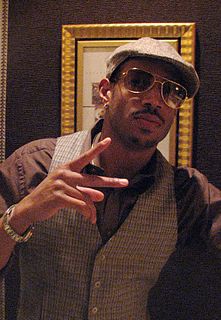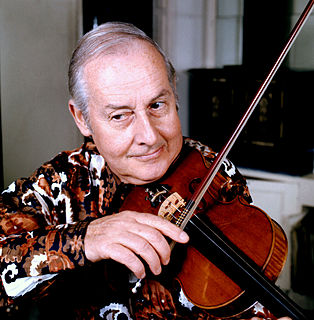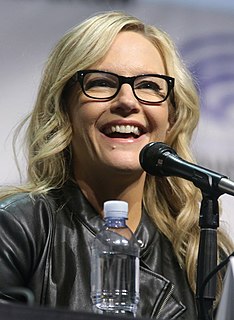A Quote by Scot Armstrong
I love when people improvise as long as they're great improvisers, what I mean by that is people can improvise within their characters and within the scene.
Related Quotes
Improvisation, it is a mystery. You can write a book about it, but by the end no one still knows what it is. When I improvise and I'm in good form, I'm like somebody half sleeping. I even forget there are people in front of me. Great improvisers are like priests; they are thinking only of their god.
You can actually improvise a lot as a voice actor. It's not that entirely different than shooting a live action movie; the characters mouths are quite easy to manipulate once all the information is built into the computer. So you can improvise a lot and it doesn't matter really how far along they are in the process they can really just make the character say something different.
In theatre you can't ad lib, so you want to pick really good material, like David Mamet or Shakespeare or whatever. You want to be really careful about what you do. But in the movies, you do have more wiggle-room. You do have more opportunities to improvise. It's fun to improvise, but I still think it's better to have a great script.





































